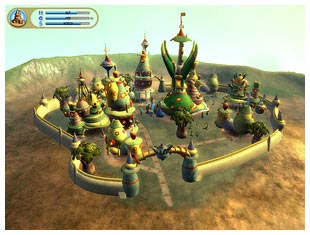I had this conversation again yesterday:
Friend: Can you imagine that? Someone paid like a $100 for this sword-thing and it’s not even real! It’s nothing. Make believe. It only exists in the game.
Me: You need to think about it differently.
Friend: But it doesn’t make any sense. They’re buying nothing!
Me: What do you buy when you get tickets to a baseball game? Or a concert?
The only thing I can figure is that the perception of reality blinds people to this obvious commonality: virtual products aren’t much different than most entertainment, whether it be going to the Indy 500 to watch people race cars in a circle or going to Disneyland to visit Space Mountain, none of it is stuff you can put in the car, take home, and place on your shelf.
People don’t play video games because they have to, they do it because it’s fun. It’s a luxury we enjoy in developed countries when our basic needs are met. It’s really just like going to a sporting event. And there is also a social element. Perhaps not as immersive as the real thing (having a beer spilled on you in the bleachers is pretty immersive), but which is more social: watching the television alone in your room or playing Counter-Strike online with your clan?
The point is that what we now think nothing of was unthinkable not so long ago (e.g. paying some guy millions of dollars to dribble a ball on a wooden floor); and what is unthinkable now will likely be common in the not too distant future. Let’s not forget, there was a time when being an Actor was an almost shameful profession (in some parts of the world, they still think paying people to act is laughable). Which leads me to this article over on Gizmag about a videogame tournament with a $1,000,000 prize. Maybe when you read the article, Mark Cuban’s comments on broadcasting these videogame tournaments at digitally-enabled movie theaters doesn’t sound so far-fetched.

